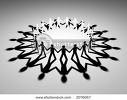
Heal the World
By Michael Jackson.
There's A Place In Your Heart And I Know That It Is Love and this place could be Much Brighter Than Tomorrow And If You Really Try You'll Find There's No Need To CryIn This Place You'll FeelThat There's No Hurt Or SorrowThere Are Ways To Get There If You Care EnoughFor The LivingMake A Little SpaceMake A Better Place...
By Michael Jackson.
There's A Place In Your Heart And I Know That It Is Love and this place could be Much Brighter Than Tomorrow And If You Really Try You'll Find There's No Need To CryIn This Place You'll FeelThat There's No Hurt Or SorrowThere Are Ways To Get There If You Care EnoughFor The LivingMake A Little SpaceMake A Better Place...
Heal The WorldMake It A Better Place For You And For Me And The Entire Human Race There Are People Dying If You Care Enough For The Living Make A Better PlaceFor You And For MeIf You Want To Know Why There's A Love That Cannot Lie Love Is Strong It Only Cares ForJoyful Giving If We TryWe Shall See In This Bliss We Cannot Feel Fear Or Dread We Stop Existing And Start Living Then It Feels That Always Love's Enough For Us Growing So Make A Better World Make A Better World...Heal The World Make It A Better Place
For You And For Me And The Entire Human Race There Are People Dying If You Care EnoughFor The Living Make A Better PlaceFor You And For Me And The Dream We Were Conceived In Will Reveal A Joyful Face And The World WeOnce Believed InWill Shine Again In GraceThen Why Do We KeepStrangling LifeWound This Earth Crucify Its Soul Though It's Plain To SeeThis World Is Heavenly Be God's Glow We Could Fly So High
Let Our Spirits Never Die In My Heart I Feel You Are All My Brothers Create A World With No FearTogether We'll Cry Happy Tears See The Nations Turn Their Swords Into Plow shares We Could Really Get ThereIf You Cared EnoughFor The Living Make A Little Space To Make A Better Place...Heal The WorldMake It A Better Place For You And For Me And The Entire Human Race There Are People DyingIf You Care Enough For The Living Make A Better PlaceFor You And For Me
Heal The WorldMake It A Better PlaceFor You And For MeAnd The Entire Human RaceThere Are People DyingIf You Care Enough For The LivingMake A Better Place For You And For Me
Heal The World Make It A Better Place For You And For MeAnd The Entire Human RaceThere Are People DyingIf You Care Enough For The Living Make A Better Place For You And For MeThere Are People DyingIf You Care EnoughFor The LivingMake A Better Place For You And For Me There Are People Dying If You Care Enough For The LivingMake A Better Place For You And For Me You And For Me
Make it a better place You And For Me....

